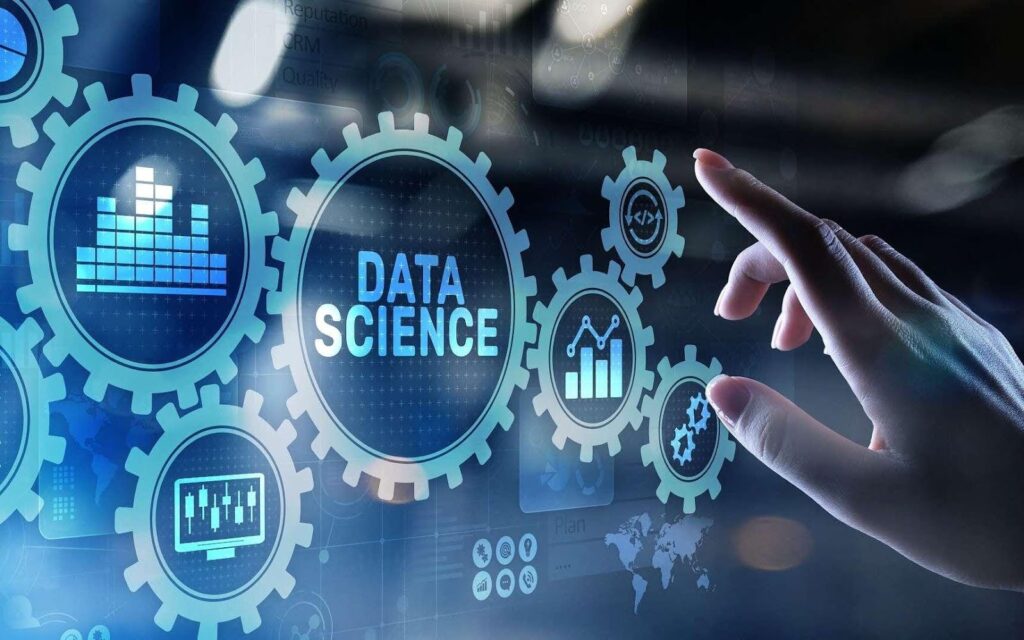Data science has been steadily gaining prominence, from its integral role in startups to its influence in large-scale corporations. In today’s digital age, data is ubiquitous and permeates every aspect of our lives. Daily business decisions, once based on intuition or experience, are now increasingly driven by data. If a company has established an effective infrastructure that allows data to flow seamlessly through all its processes, it can harness this data to drive successful outcomes. Data science serves as a powerful tool to enhance, explore, and innovate, paving the way for new discoveries and novel approaches. It is not merely a trend, but a transformative force that is here to stay and shape the future.
Data science is poised to usher in a vibrant ecosystem teeming with innovative, data-driven business opportunities. As we witness a sweeping trend across all sectors, we can anticipate a future where vast amounts of data are readily available to everyone. This accessibility empowers entrepreneurs to not only identify and prioritize areas of improvement in business processes, but also to uncover potential challenges and opportunities for mutual growth. The dawn of this data-rich era heralds exciting possibilities and unprecedented pathways to success.
The field of engineering has been significantly impacted by the increasing demand for data collection and analysis. With the rise of big data in global industries, engineers have become pivotal in managing this data, from its acquisition and storage to its utilization for decision-making. Individuals with an engineering background are often skilled at devising methods for analyzing data sets to extract pertinent insights.
Here are some new examples of how Data Science and the engineering world has collaborated:
- Generative AI: a branch of artificial intelligence that can generate new content. The technology behind Generative AI involves complex mathematics and requires enormous computing power. The models are essentially prediction algorithms. They are most used today to create content in response to natural language requests.
- Machine learning: Linear Regression, Logistic regression, Naive Bayes, Decision Trees, Random Forest, K-Nearest Neighbour (KNN) Algorithm, K-Means Algorithm, etc. All these tools can be utilized to predict, understand, uncover business questions and more.
- Cross-Industry Data Collaboration: Technologies such as AI and machine learning are helping companies glean deeper insights from data3. This requires a data foundation and tools that can analyze all types of data, demonstrating the collaboration between data science and engineering.
What is the impact of data science applications? Here are some use cases where it has been a key piece of improvement in different areas:
- Healthcare: One of the most striking examples of the applications of data science in healthcare is its use in medical imaging. X-ray machines, CT scanners, and MRI machines generate irregular imagery, and doctors spend years honing their skills to interpret them consistently and accurately.
- Supply Chain: Data science’s forecasting advantage minimizes product loss, reduces unnecessary spending, and ensures businesses can meet customer demand without creating waste.
- Development of New Pharmaceuticals: Artificial intelligence and data science offer a new way forward for drug developers. AI can examine vast pharmaceutical data sets and “learn patterns that might be too subtle or complex for humans to recognize.
To all these areas of impact and applications, there is a need to answer the question of why Data Science? Simply put a Data Scientist can add truth value to any organization by:
• Leveraging Data Science to empower management and officers to make informed decisions: Data Science provides valuable insights that can guide decision-making processes, leading to more effective and strategic choices.
• Directing actions based on trends identified through Data Science: By analyzing and interpreting complex datasets, Data Science helps in identifying trends that can shape the organization’s goals and strategies.
• Encouraging the staff to adopt best practices through Data Science: Data Science can highlight areas of improvement and efficiency, encouraging staff to focus on issues that matter and adopt best practices.
• Identifying opportunities with Data Science: Through predictive analytics and machine learning, Data Science can uncover hidden opportunities and trends that can give the organization a competitive edge.
• Making decisions backed by data-driven evidence through Data Science: Data Science allows for evidence-based decision-making, reducing uncertainty and enabling the organization to make confident choices.
• Testing decisions using Data Science: Data Science allows for robust testing and validation of decisions, ensuring they lead to the desired outcomes.
• Using Data Science for identification and refining of target audiences: Data Science can help in segmenting and understanding the target audience better, leading to more effective marketing and customer engagement strategies.
• Recruiting the right talent for the organization with the help of Data Science: Data Science can aid in the recruitment process by identifying the skills and attributes that lead to success within the organization, ensuring the right talent is hired
Indeed, the role of a Data Scientist is pivotal in shaping the future of any organization. However, it’s important to remember that the field of data science is not static. The data science landscape is undergoing a profound transformation, demanding an acute awareness of emerging trends. As we move forward, the ability to adapt and grow with these changes becomes crucial.
Professionals and organizations embracing these trends will navigate the future with enhanced capabilities. Staying informed and agile is the mantra; let data science lead the way into a new era of discovery and insights, where each data point contributes to the mosaic of progress. This is the new paradigm where data science is not just a tool, but a guiding light illuminating the path to progress and success.
References
2. Engineering Data Analysis: Why It Matters | UC Riverside
3.Why Data Science Is the Future (tufts.edu)
4.Why Data Science Matters and How It Powers Business in 2024 (simplilearn.com)

